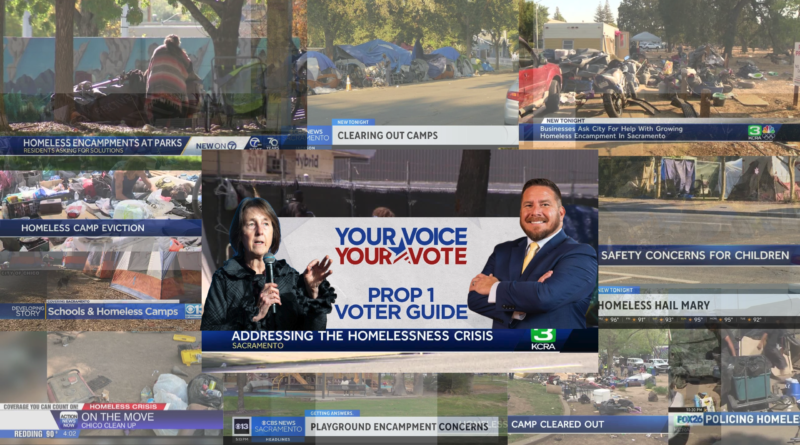Prop. 1: A Hope for the Homeless?
Prop. 1 would allocate funds to build housing and treatment centers for the homeless. California considered the measure on the March 5 ballot, and based on early returns, it leans toward passage. Prop. 1 would not raise taxes, and instead authorize the state to sell $6.4 billion in bonds and reallocate existing funds from the Mental Health Services Act (MHSA).
“California has a serious problem with unhoused folks,” said Senator Nancy Skinner. “Everyone that we see on the streets, I mean our homeless population is much larger than that.”
The state sells bonds to investors in order to pay for projects. Bonds are an expensive way of financing projects because the state has to pay back its investors with added interest. The state is currently repaying $70 billion in bonds with another $20 billion in bonds waiting to be sold. Prop. 1 alone would add an additional $310 million to the annual debt repayment for the next 30 years.
“Prop. 1 enables us to have more housing that has those types of support services and also beef up our mental health services to address that portion of our unhoused people that also have those very serious mental health needs,” stated Skinner.
Passed in 2003, MHSA raises around $2 to $3.5 billion annually through a 1 percent income tax on incomes over $1 million in order to pay for mental health services. Prop. 1 would raise the state’s portion of the MHSA money from 5 percent to 10 percent and decrease the counties’ portion accordingly.
“I feel we already do those services that are mentioned in Prop. 1 so why are we wanting to pay into programs that we already do pay into?” remarked Assemblyman Juan Alanis. “We are in a deficit so it’s going to be kind of hard to fund a lot of these programs.”
The state would be required to spend this money on improving mental health services. Counties would also now be required to spend a portion of the MHSA money on housing and services like education, and treatment for addiction would be included under MHSA guidelines.
“In some of the housing that we have now been providing to our unhoused people: without those mental health services they are not thriving… that is why there is a larger proportion in Prop. 1 for that type of service,” said Skinner.
Of the $6.4 billion raised, Prop. 1 would allocate $2 billion to building housing and $4.4 billion to building treatment. Housing would include constructing new housing and converting existing structures such as motels and hotels to housing for the homeless. In total, Prop. 1 would build 4,350 housing units with 2,350 designated for homeless veterans, and would increase mental health treatment capacity by 6,800 people, all for California’s homeless population of over 170,000.
“Providing them with just houses and letting them sleep in it has been proven wrong. They’ve torn up houses, they’ve ripped up houses… it’s a waste of time that didn’t go anywhere… So depending on where the money is going to and to what programs would help me better decide on those kinds of decisions,” stated Alanis.
“Everyone that we see on the streets is not necessarily a person that needs the type of services that Prop. 1 offers, but there are a good number who do, and so just trying to provide housing alone to the folks that have these mental health issues and who need these kinds of support services is not going to be adequate,” added Skinner.
“I think it will be a big change and it’s going to have an impact, what we’ve been doing has not worked. We need more beds, more hospitals, and more workers,” said Assemblymember Liz Ortega.


It was great to read that a majority of the funding would be towards addressing mental health concerns of the homeless, instead of simply giving them houses. Like Assemblyman Alanis said, only giving housing would be a waste of time, but by also fighting against the probable root of the issue, that would be much more beneficial for both sides. The input from the people voting on the prop was a nice part of the article.